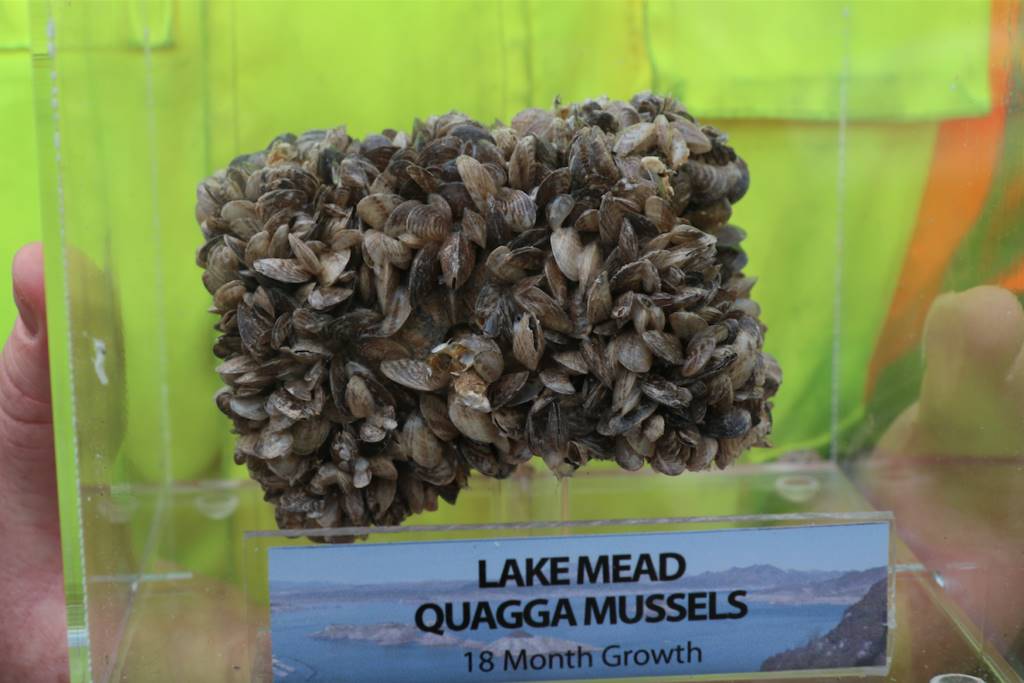Invasive mussels have spread to provinces and states throughout North America, but not yet in B.C., and the provincial government has announced new plans to increase inspection hours and the inspection operating season, more than double the number of inspectors, increase public education, expand scientific lake monitoring and provide Canada’s first multi-purpose mussel-sniffing dog.
Two brand new border inspection stations will open at Yahk and Midway, bringing the total number of inspections stations in B.C. to 10 locations. The province’s busiest station at Golden will be open 24 hours. The remaining nine stations will have their hours extended generally from dawn to dusk, however, actual opening and closing times will vary to help ensure compliance. The inspection operating season will now run from mid-March until mid-November.
To support the new stations and extended hours, the province is adding 35 inspection officers to the program, bringing the total to 68 auxiliary conservation officers. In addition, the province is providing the Habitat Conservation Trust Foundation with three years of support to expand government’s ongoing invasive mussel lake monitoring to detect potential invasive mussel larvae
The province is also unleashing a new and unique tool to fight invasive mussels, Canada’s first multi-purpose mussel detection dog. Kilo, a German Shepherd Dog, is currently undergoing training to sniff out mussels as well as firearms and bear parts, and will also be used in evidence recovery cases. Beginning July 1, Kilo will be working with his conservation officer handler at high volume stations on a rotating basis to help detect invasive mussels.
“It’s great to see our province get out ahead and remove the potential of a harmful invasive species, which has the ability to alter an entire ecosystem,” said Minister of Agriculture Norm Letnick. “The additional 35 inspection officers and two new inspection stations are a continuation of our work to proactively maintain the resources that sustain our environment and economy.”
The province will also continue to work with the Canada Border Services Agency to strengthen the screening of all watercraft entering from the United States, and intercept high risk watercraft at border crossings.
Zebra and quagga mussels can significantly alter the food web resulting in the collapse of native fish populations, including sockeye salmon. They can clog pipes and water systems and can ultimately affect municipal and industrial water supplies. The economic impact of invasive mussels to hydropower, agricultural irrigation, municipal water supplies and recreational boating has been estimated to be $43 million annually. They also have a reputation of decreasing the quality of the recreational experience, which can impact tourism.
